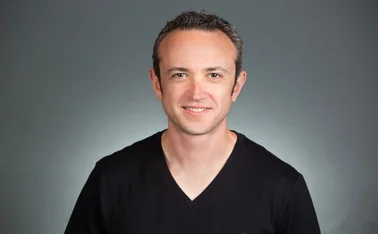
Lloyd's and technology: London stalling?

Will the wider use of tablet and smartphone technology in Lloyd's and the London market help retain its place as a major global insurance hub? Mark Kirpalani finds out.
It is well known that Lloyd's of London runs at a slower, more traditional pace than that of commercial insurers.
Anne Rannie of Lloyd's recently noted that, while quill pens are reserved for ceremonial use, the market is "still relying too heavily on paper" and is "desperately" trying to change the situation.
Currently, the London market pays out £10bn in claims annually and handles approximately 210 000 claims at any one time.
Given the large amount of unusual cases the market has to deal with, from expensive art to protection against hurricanes, it is vital that operations, particularly claims processing, is as efficient as possible.
To achieve this, the London market is turning to technology as part of its 2005 modernisation programme.
The prime objective of the project is to improve client services and, in particular, the timeliness of responses to claims so that the market maintains its competitive edge.
Lloyd's has already introduced a number of initiatives like the Electronic Claims File and the Claims Transformation Programme, which has achieved a 40% improvement in end-to-end transaction times for claims since 2010.
Reducing the amount of paperwork the market handles is just the first step to modernisation. Today, the Lloyd's market is starting to break new ground by exploring how interactive touch tables and smartphones combined with electronic document capture and management can enhance the traditional way of conducting face-to-face business, while streamlining workflows.
It is not yet mandatory that the London market uses electronic document capture. However, the benefits of its implementation are already widely recognised.
Using the right solution, it is possible to deliver work such as claims files to the appropriate business line faster and more accurately than with manual processes, which is ultimately more cost and time effective.
Manual sorting and transition of claims documents is unavoidably time consuming. However, by using an electronic capture solution to store claims as soon as they enter the business, a digital copy of the data can be delivered instantly to the correct work stream.
Employees can also electronically store, retrieve and share these new claims files and add on-going updates.
By storing and archiving all of the electronic data in one centralised place, a full audit trail is kept for each document, helping the London market quickly meet compliance regulations.
In the long term, the use of electronic document capture also eliminates the need to store hard copies, which cuts the cost of commercial storage space, ensures documents are more secure and reduces the possibility of human error in the sorting process.
Taking technology to the next level
Ensuring that the capabilities of the latest tablet and smartphones are fully used will bring the London market up to speed with equivalent commercial insurance companies.
By working on such a device, claim handlers can pull up all the information they need and update electronic documents while out in the field, fully enabling the mobile workforce.
In 2011, the Lloyd's market exchanged its first electronic fully-placed contract via a tablet computer. The device enables a more efficient way for brokers to store and transport documents, and it is fast becoming a crucial tool in the underwriting process, increasingly replacing traditional underwriting slips.
Soon, the London market may even adopt interactive touch tables, a table-top device like a tablet computer but on a much larger scale.
As of July, the very first ‘proof of concept' tables were introduced for London market participants to try out. If successful, clients may soon be meeting to discuss insurance around an interactive coffee table.
There is no stopping the evolution of technology. To remain competitive, the London market needs to continue to embrace these changes and the benefits they bring, not least the potential for improved workflows and a quicker claims form process.
Mark Kirpalani, managing director, Capital Capture
Only users who have a paid subscription or are part of a corporate subscription are able to print or copy content.
To access these options, along with all other subscription benefits, please contact info@postonline.co.uk or view our subscription options here: http://subscriptions.postonline.co.uk/subscribe
You are currently unable to print this content. Please contact info@postonline.co.uk to find out more.
You are currently unable to copy this content. Please contact info@postonline.co.uk to find out more.
Copyright Infopro Digital Limited. All rights reserved.
As outlined in our terms and conditions, https://www.infopro-digital.com/terms-and-conditions/subscriptions/ (point 2.4), printing is limited to a single copy.
If you would like to purchase additional rights please email info@postonline.co.uk
Copyright Infopro Digital Limited. All rights reserved.
You may share this content using our article tools. As outlined in our terms and conditions, https://www.infopro-digital.com/terms-and-conditions/subscriptions/ (clause 2.4), an Authorised User may only make one copy of the materials for their own personal use. You must also comply with the restrictions in clause 2.5.
If you would like to purchase additional rights please email info@postonline.co.uk







